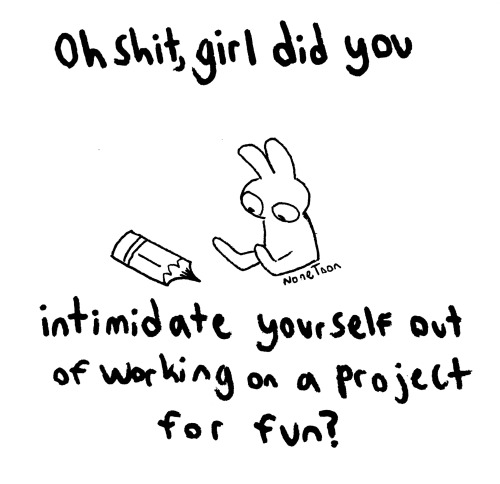Writing Advice - Blog Posts

Too many writers are using generative 'AI' to make their book covers, so I've written a guide on how to make your own cover for free or cheap without turning to a machine.
If you can't afford to pay an artist, you CAN make your own!
I hope this is a helpful overview that covers the basics and points to some free resources.
Tips for writing flawed but lovable characters.
Flawed characters are the ones we root for, cry over, and remember long after the story ends. But creating a character who’s both imperfect and likable can feel like a tightrope walk.
1. Flaws That Stem From Their Strengths
When a character’s greatest strength is also their Achilles' heel, it creates depth.
Strength: Fiercely loyal.
Flaw: Blind to betrayal or willing to go to dangerous extremes for loved ones.
“She’d burn the whole world down to save her sister—even if it killed her.”
2. Let Their Flaws Cause Problems
Flaws should have consequences—messy, believable ones.
Flaw: Impatience.
Result: They rush into action, ruining carefully laid plans.
“I thought I could handle it myself,” he muttered, staring at the smoking wreckage. “Guess not.”
3. Show Self-Awareness—or Lack Thereof
Characters who know they’re flawed (but struggle to change) are relatable. Characters who don’t realize their flaws can create dramatic tension.
A self-aware flaw: “I know I talk too much. It’s just… silence makes me feel like I’m disappearing.” A blind spot: “What do you mean I always have to be right? I’m just better at solving problems than most people!”
4. Give Them Redeeming Traits
A mix of good and bad keeps characters balanced.
Flaw: They’re manipulative.
Redeeming Trait: They use it to protect vulnerable people.
“Yes, I lied to get him to trust me. But he would’ve died otherwise.”
Readers are more forgiving of flaws when they see the bigger picture.
5. Let Them Grow—But Slowly
Instant redemption feels cheap. Characters should stumble, fail, and backslide before they change.
Early in the story: “I don’t need anyone. I’ve got this.”
Midpoint: “Okay, fine. Maybe I could use some help. But don’t get used to it.”
End: “Thank you. For everything.”
The gradual arc makes their growth feel earned.
6. Make Them Relatable, Not Perfect
Readers connect with characters who feel human—messy emotions, bad decisions, and all.
A bad decision: Skipping their best friend’s wedding because they’re jealous of their happiness.
A messy emotion: Feeling guilty afterward but doubling down to justify their actions.
A vulnerable moment: Finally apologizing, unsure if they’ll be forgiven.
7. Use Humor as a Balancing Act
Humor softens even the most prickly characters.
Flaw: Cynicism.
Humorous side: Making snarky, self-deprecating remarks that reveal their softer side.
“Love? No thanks. I’m allergic to heartbreak—and flowers.”
8. Avoid Overdoing the Flaws
Too many flaws can make a character feel unlikable or overburdened.
Instead of: A character who’s selfish, cruel, cowardly, and rude.
Try: A character who’s selfish but occasionally shows surprising generosity.
“Don’t tell anyone I helped you. I have a reputation to maintain.”
9. Let Them Be Vulnerable
Vulnerability adds layers and makes flaws understandable.
Flaw: They’re cold and distant.
Vulnerability: They’ve been hurt before and are terrified of getting close to anyone again.
“It’s easier this way. If I don’t care about you, then you can’t leave me.”
10. Make Their Flaws Integral to the Plot
When flaws directly impact the story, they feel purposeful rather than tacked on.
Flaw: Their arrogance alienates the people they need.
Plot Impact: When their plan fails, they’re left scrambling because no one will help them.
Flawed but lovable characters are the backbone of compelling stories. They remind us that imperfection is human—and that growth is possible.



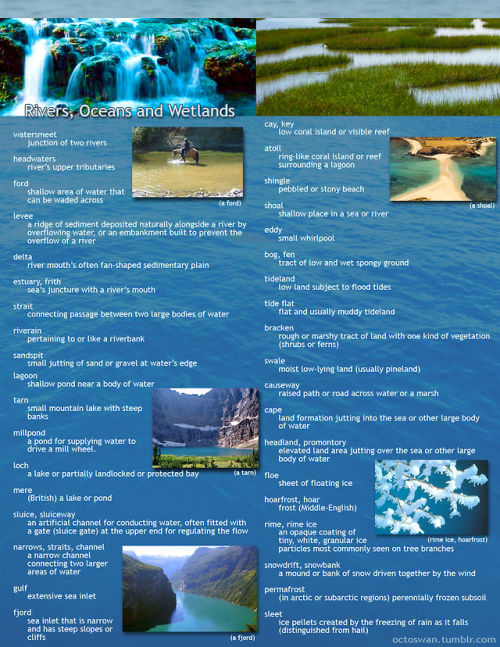

I made these as a way to compile all the geographical vocabulary that I thought was useful and interesting for writers. Some descriptors share categories, and some are simplified, but for the most part everything is in its proper place. Not all the words are as useable as others, and some might take tricky wording to pull off, but I hope these prove useful to all you writers out there!
(save the images to zoom in on the pics)
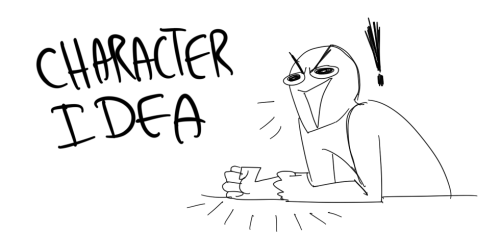
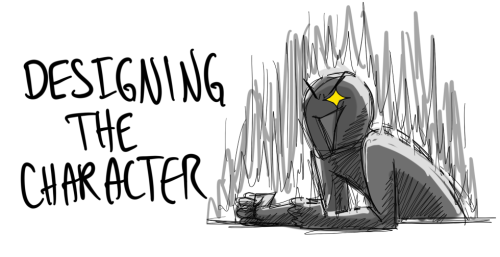
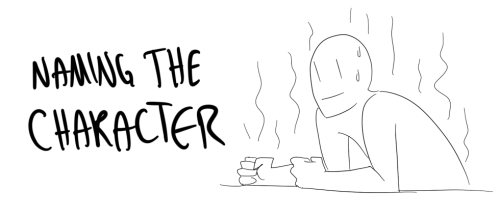
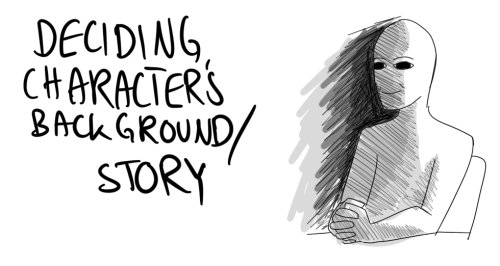
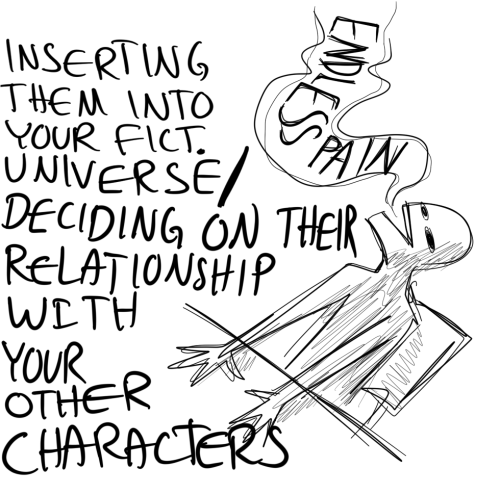
the suffering never ends
Learn the Differences Between Novelettes, Novellas, and Novels
Since I am currently in the process of writing a story, but I'm not sure what I want it to be... I'd figure I'd go ahead and share the differences!
So let's get to it!
Writing the first draft of a novel can be a daunting, arduous task. That’s why the novelette format can be so appealing. In many ways, a novelette is like a short novel. It allows writers to hone their craft by learning how to tell stories under a strict word count restriction.
What Is a Novelette?
The definition of “novelette” is any short, fictional work of prose narrative. Novelettes have a lower number of words than a novel or novella, but a higher word count than other forms of prose fiction like short stories or microfiction. Despite lacking the page count of a full-length novel, novelettes generally tell a complete story. Some people refer to novelettes as “long short stories” or “short novellas.”
How Long Is a Novelette?
Any work of fiction with a word count between 7,500 and 19,000 is generally considered a novelette. A novelette is longer than a short story, which usually has a word range of between 1,000 and 7,500 words, and flash fiction, which is usually under 1,000 words. Any piece of creative writing that is longer than a novelette but shorter than a novel is considered a novella.
Three Differences Between Novelettes and Novellas
A novella is a standalone piece of fiction that is shorter than a full-length novel but longer than a short story or novelette. Novellas incorporate many narrative and structural elements of novel-length stories—but like novelettes, they often focus on single points of view, focusing on a single central conflict, and rely on fast pacing. Here are the differences between novelettes and novellas:
Word count: The primary difference between a novelette and a novella, then, is word count (novelettes are shorter than novellas).
Subject matter: Traditionally, novelettes tended to focus on whimsical, sentimental themes. The modern-day novelette, though, is more like the novella in that it can encompass different genres like sci-fi, drama, or historical short fiction.
Complexity: In terms of storytelling ambition, novelettes tend to split the difference between novellas and shorter forms like short stories. Novelettes tend to have a greater focus on character development, worldbuilding, and plotting than short stories. However, the stories are generally more concise and focused than a novella-length work, as the word count is often too restrictive to tell a long story.
Three Differences Between Novellas and Novels
The most obvious difference between novels and novellas is page length and number of words. However, beyond this superficial difference, many structural and thematic hallmarks of novellas make them their own standalone genre of writing. Some of these include:
A single central conflict: Most novellas explore a single, compelling central conflict. Because of their shorter length, novellas have less time to explore subplots and tend to focus on the main plot. Novellas generally have one main character and a handful of secondary characters. Because of length constraints, most of the character development will be focused on the protagonist.
Fast pacing: Novellas usually move at a quick pace. Whereas novels can spend time diverging from the central conflict to delve into backstory and explore multiple points of view, novellas generally offer a quick compelling story with a singular point of view.
Unity of time and place: When writing novellas, writers should root the action in continuous time within a limited space, ideally one location.
Benefits of Writing a Novelette
For short story writers or people who generally write shorter works, novelettes can be an opportunity to tell a longer-form, standalone story. For writers who are used to writing, say, full-length science fiction or fantasy novels, the word count restriction of a novelette offers a chance to tell a good story with a simple cast of characters and few subplots.
Seven Examples of Novelettes
Novelette writers know how to tell a complete story in a relatively short amount of time. Here are some famous examples of novelettes, many of which were originally published in literary magazines:
The Fall of the House of Usher by Edgar Allan Poe (1839)
The Strange Case of Dr. Jekyll and Mr. Hyde by Robert Louis Stevenson (1886)
The Metamorphosis by Franz Kafka (1915)
The Call Of Cthulhu by H. P. Lovecraft (1928)
The Little Prince by Antoine de Saint-Exupéry (1943)
Bloodchild by Octavia E. Butler (1995)
Hell Is the Absence of God by Ted Chiang (2001)
I hope this helps! Thank you for still being my followers and patiently waiting for a post!
Some truths about the publishing industry because I certainly got blindsided when going in. Now I'm so broken by this industry I struggle to encourage aspiring writers lmao
if you’re white and wanna write a poc character and feel awkward about it i implore you to ignore any twitblr stuff treating it as a massive ethical burden and instead come in more with the same mindset you’d have if you wanted to write about idk firefighters but didn’t know anything about firefighters so you do... research. Like fuck off with the weird kinda creepy calls for spiritual introspection you’re not writing about god damn space aliens you’re writing about humans and if you think you need more perspective of different life experiences just read?
How to plant information elegantly
Say, for example, you’re writing a swimming pool scene and you need to plant the fact that Susan is blonde, because in a few chapters, the detective will find a blond hair at the crime scene.
You want the planted information to be memorable, but at the same time not stand out too much. The ideal is to push the information into the reader’s subconscious without a neon light arrow saying, “You might want to remember this, dear reader. This will be relevant!” The planted information needs to feel natural, organic, but memorable enough so when it turns out to be ✨a clue✨, your reader thinks, “I should have seen it!”
Let’s look at some options.
Susan, who is blonde, took a deep breath and dived into the pool.
This feels forced and awkward. The two pieces of information (pool + blonde) are not connected, the fact that she is blonde feels irrelevant and shoved in. If the reader remembers this, it’s because they noticed how the information is forced upon them.
Elegant ⭐
Memorable ⭐⭐
Organic ⭐
The blonde Susan swam across the pool. / The blonde, Susan, swam across the pool.
This feels more natural, but there’s a danger that only the swimming will stick into the reader’s mind because her being blonde is so unnoticeable. There is also a minor danger that the reader will expect an non-blonde Susan to show up in the first variation.
Elegant ⭐⭐
Memorable ⭐
Organic ⭐⭐
Susan was annoyed. She had just washed her hair with that ridiculously expensive Luscious Blonde shampoo and now her friends wanted to go swimming? What a waste of money.
This feels natural and organic, because both elements are conveyed from Susan’s point of view. They are both relevant and connected, and on top of that you get to build Susan’s character.
Elegant ⭐⭐⭐
Memorable ⭐⭐⭐
Organic ⭐⭐⭐
Her friends were already in the pool, but Susan held up her pocket mirror, making absolutely sure that the latex cap wouldn’t let any water in. She just had her hair bleached and after the debacle of 2019, she would never forget what chlorinated water did to bleached hair.
Susan’s POV makes her blond hair relevant to the swimming, as with the example above, but this time you’re presenting a completely different character. It feels organic and personal, and the fact that she is blonde will be lodged into the reader’s mind without screaming “It’s a clue!”.
Elegant ⭐⭐⭐
Memorable ⭐⭐⭐
Organic ⭐⭐⭐
I hope this is helpful! Follow me for more writing tips or browse my entire collection of writing advice now.
Happy writing!
Hey, random writing tip: Instead of having something be a ridiculously unlikely coincidence, you can make the thing happen due to who this particular character is as a person. Instead of getting stuck on "there's no logical reason to why that would happen", try to bend it into a case of "something like this would never happen to anybody but this specific fucker." Something that makes your reader chuckle and roll their eyes, going "well of course you would."
Why would the timid shy nerd be at a huge sketchy downtown black market bazaar? Well, she's got this beetle colony she's raising that needs a very specific kind of leaf for nest material, and there only place to get it is this one guy at the bazaar that sells that stuff. Why would the most femininely flamboyant guy ever known just happen to have downright encyclopedic knowledge about professional boxing? Well, there was this one time when he was down bad for this guy who was an aspiring professional boxer...
I know it sounds stupidly obvious when written out like this, but when you're up close to your writing, it's hard to see the forest for the trees. Some time ago I finished reading a book, where the whole plot hinges on character A, who is 100% certain that character B is dead, personally getting up and coming down from the top rooms of a castle, to the gates, at 3 am, to come look at some drunk who claims to be this guy who died 17 years ago. Why would A do that, if he's sure that B is dead?
Because he's a Warrior Guy from a culture of Loyalty And Honour, and hearing that someone's got the audacity to go about claiming to be his long-lost brother in battle, there is no other option than to immediately personally go down there to beat the ever-loving shit out of this guy. Who then turns out to actually be character B, after all.
one of my worst writing sins is abusing my power to create compound words. i cannot write the sentence "The sun shone as bright as honey that afternoon." no. that's boring. "The sun was honey-bright that afternoon" however? yes. that sentence is dope as fuck. i do not care if "honey-bright" is a word in the english dictionary. i do not care if the sentence is grammatically correct. i will not change. i will not correct my erred ways. the laws of the english language are mine.
"but they are not canon"
Do I look like I give a fuck
being a writer leads to a genuinely helpful but also very stupid kind of mindfulness where you'll be having a sobbing breakdown or the worst anxiety attack of your life and think "okay, I really need to pay attention to how this feels. so I can incorporate it into my fanfiction."
If You’re Writing a Female Character, Avoid these Bad Writing Mistakes
Avoid focusing solely on how she looks, what she wears, or how attractive she is to others.
Don’t make her dependent on male characters for rescue or decision-making.
Avoid giving her unrealistic abilities without any training or explanation.
Avoid portraying her as constantly crying, screaming, or overly dramatic without depth.
Don’t make her entire character arc revolve around finding love or getting married.
Avoid creating her as the only female in a predominantly male cast just for diversity points.
Avoid having her dialogue filled with stereotypical phrases and overused expressions.
Ensure she has realistic imperfections and challenges to overcome.
12 Emotional Wounds in Fiction Storys
Betraying a Loved One. Your character made a choice, and it backfired, badly. They betrayed someone close to them, maybe on purpose, maybe by accident. Now, the guilt’s eating them alive. They might try to fix things, but can they even make up for what they did?
Guilt Over a Past Mistake. They made a mistake, one that cost someone else. Maybe it was reckless, maybe it was a dumb decision, but now it haunts them. They can’t stop thinking about it, and no matter how hard they try to make things right, the past keeps pulling them back.
Survivor’s Guilt. Imagine surviving something awful, an accident, a disaster, but someone else didn’t make it. Now your character is stuck asking, “Why me? Why am I still here?” They push people away, convinced they don’t deserve to be happy or even alive.
Feeling Powerless. Your character is trapped, maybe in an abusive home, a toxic relationship, or just in life itself. They feel stuck, with no control over their own future.
Being Wrongly Accused. They didn’t do it. But no one believes them. Your character has been falsely accused of something serious, maybe even a crime and now they’re fighting to clear their name. It’s not just about proving their innocence, though. They’re also battling the pain of being abandoned by people who were supposed to stand by them.
Public Humiliation. They’ve just been humiliated in front of everyone, maybe it’s a video gone viral, or they were betrayed by someone they trusted. Now, they can’t even look people in the eye.
Living in Someone’s Shadow. No matter what they do, it’s never enough. Someone else, a sibling, a friend, a partner, always shines brighter. They feel stuck in that person’s shadow, invisible and overlooked.
Abandoning a Dream. They had big dreams, but somewhere along the way, life got in the way, and now they’ve given up. Maybe it was because of fear or circumstances beyond their control, but the loss of that dream has left them feeling empty.
Childhood Trauma. Something happened to them when they were young, something painful that still affects them today. Whether it was abuse, neglect, or a significant loss, the trauma follows them into adulthood, shaping how they see themselves and the world.
Being an Outsider. They’ve never felt like they fit in, whether because of their background, their personality, or something else. They long for acceptance but fear they’ll never find it.
Struggling with Addiction. They’re caught in a destructive cycle, whether it’s with substances, behaviors, or even people. The shame and struggle to break free from addiction are real and raw.
Living with Chronic Illness. They’re living with a chronic illness or disability, and it’s not just the physical challenges that weigh them down, it’s the emotional toll, too. Maybe they feel isolated, or like they’re a burden to others.
Creepy things to add to settings
Just to make things a bit more interesting
—Water stains from flooding
—Withered down machinery resulting from weather
—Torn fabric caught on spikes
—Attempting to find a hiding spot, only to turn around and find the skeleton of the last person who tried to hide there
—Expecting to see spiders and other bugs, only for them all to scurry away as a new presence enters the room
—Fog slithering in through holes in the walls or open windows
—Stepping on the dead, crunchy leaves of plants that started growing inside
—The characters knowing the floorboards will creak, so they try really hard to keep quiet as they travel. Make them all freeze when they hear something else coming at them and decide if they should stand still to keep from attracting any more attention or if they run for their lives
—The wallpaper and paintings on the wall torn off and scattered against the floor, leaving the walls barren and lifeless
it’s all about how you describe it! Find things that get under people’s skin (bugs, snakes, certain sounds, etc) and connect them to whatever you’re trying to make creepy
Writing Character Accents in Fiction
Hey there, thanks for the question! I speak English as a second language; most English speakers I encounter aren’t native (yes, including fictional people); thus, this is a concern I’ve explored personally when I write.
I think the core principle regarding accent writing is this: it shouldn’t be distracting.
For the same reasons why Stephen King prescribes the basic dialogue tag “said” rather than fancier alternatives like “whispered”, “shouted” or “screeched”, dialogue must be first and foremost easy to read. It must flow like a real conversation – the pace and tone are a lot more important than how specific words are being pronounced by the character.
Focus on what effect the accent has:
Using adjectives to describe their voice in general. Different types of English (American, British, Australian, etc.) will give off a different vibe, also partly dependent on how your character speaks in general:
Lilting: Having a smooth rise and falling quality; sing-song like. Welsh accent is often described as singing.
Posh: from a high social class. This is the term generally used to describe the upper-class British accent.
Nasal: this happens when the sound goes through somebody’s nose when they’re speaking. North American accents are more nasal than, say, British pronunciations.
Brash: harsh, loud, indicative of sounding a little rude.
Slur: speaking indistinctly; words merging into one another.
Using metaphors.
Her voice was cotton and fluffy clouds.
When he spoke, the ‘r’s scratched the insides of his throat.
Mentioning their accent with a brief example(s).
“Would you like to drink some wine?” she said, though her Indian accent gave extra vibration to her ‘w’s and ‘r’s, making the words sound more like ‘vould you like to drrrink some vine’.
“I want some chocolate.” His syllables were choppy and ‘l’s rather flat, saying ‘cho-ko-lit’.
Some Tips:
Don’t phonically spell out everything. Perhaps give a few examples in the beginning, but stick to standard English spellings.
Pay attention to word choice, slang, and colloquialisms.
An Australian person would say “tram”, not “trolley; “runners” instead of “sneakers”
A Canadian may refer to a “fire hall” – what Americans call a firehouse or fire station
If your character comes from a non-Enligsh background:
Use vocabulary from other languages.
“What time was the exam, ah? Two o’clock? Jiayou!” → putting “ah” or “la” at the end of sentences + Jiayou means “break a leg” in Singlish.
“I can’t believe that 4-year-olds have their own SNS accounts now.” → “SNS” is short for “social networking service”, a term used to refer to social media in Korea. This would a subtle difference – even though it isn’t technically Korean at all!
Transpose grammar from different languages.
For example, in French, plural nouns take plural adjectives (whereas in English, you would speak of ‘white cars’, not ‘whites cars’).
─── ・ 。゚☆: *.☽ .* . ───
💎If you like my blog, buy me a coffee☕ and find me on instagram! Also, join my Tumblr writing community for some more fun.
💎Before you ask, check out my masterpost part 1 and part 2
📚 The Art of Subtext in Writing 📚
Let’s talk about subtext. It’s one of those things you feel when you read, but maybe don’t consciously notice, and yet—it’s everywhere. It’s in the way characters talk to each other, the details they avoid, the glances that linger, and the things left unsaid. Subtext is what gives a story depth, pulling readers into the unspoken layers underneath the surface. It’s like the heartbeat of a scene, or the feeling you get when you’re reading and know there’s more to what’s happening than meets the eye.
So, why is subtext important? Because it makes stories feel real. Life isn’t always clear-cut; people don’t say exactly what they mean, emotions can be complex, and motives aren’t always laid out on the table. Subtext reflects that complexity, making your characters and situations feel richer and more relatable.
Here are a few types of subtext and how to use them effectively:
1. Romantic/Emotional Tension
This is probably the most common type of subtext, especially in romance or drama. Think of characters who clearly like each other but won’t admit it. They argue, they bicker, they avoid eye contact, but all that is subtext for “I’m secretly into you.” Use this when you want your readers to root for a connection that isn’t obvious or acknowledged yet.
2. Conflict Subtext
Not all conflict is overt—sometimes it’s in the snappy dialogue or forced politeness. A character might “agree” with something on the surface while feeling the complete opposite. This kind of subtext is powerful because it lets readers see two conflicting layers: the polite conversation happening outwardly, and the resentment or anger bubbling underneath.
3. Dramatic Irony
This is when the reader knows something the character doesn’t, creating tension or humor. Subtext here involves leaving hints in the writing that make readers feel “in on it.” For example, if a character is convinced their plan is foolproof but readers already know something’s about to go wrong, you create an undercurrent of impending doom or anticipation.
4. Thematic Subtext
Subtext isn’t just for characters; it can also layer meaning into the theme of a story. If your book’s theme is about, say, identity, you might use subtext to show how a character hides certain parts of themselves around certain people. They might be saying one thing while subconsciously revealing their discomfort or need for acceptance.
5. Cultural/Social Commentary
Sometimes the best social commentary is subtle. Rather than outright saying, “This society values material wealth over happiness,” you might show a character who’s obsessed with buying status symbols while feeling deeply unfulfilled. This approach can make readers reflect on the message more personally and deeply.
How to Use Subtext
To work subtext into your writing, trust your readers. Give them just enough so they can pick up on what’s below the surface without spelling it all out. Here’s a small exercise: write a scene between two characters who are pretending to be friendly but actually dislike each other. Notice how tone, body language, and word choice convey the tension without anyone actually saying, “I don’t like you.” It’s all about restraint.
I’m noticing an increase in new fic writers on AO3 who…uh…mayy not know how to format their fics correctly..so here is a quick and VERY important tip
Using a random fic of mine as example..


The left example: ✅✅✅
The right example: ❌❌❌
Idk how many times I’ve read a good fic summary and been so excited to read before clicking on it and being met with an ugly wall of text. When I see a huge text brick with zero full line breaks my eyes blur and I just siiiigh bc either I click out immediately or I grin and bear it…it’s insufferable!
If a new character speaks, you need a line break. If you notice a paragraph is becoming too large, go ahead and make a line break and/or maybe reconfigure the paragraph to flow better. I’m not a pro writer or even a huge fic writer but…please…ty…
So... I found this and now it keeps coming to mind. You hear about "life-changing writing advice" all the time and usually its really not—but honestly this is it man.
I'm going to try it.

A Single Word Written is Better Than None

I took a few months off from writing. Not voluntarily. I just couldn’t seem to write a single word. Whenever I would open up a new document, I would simply shut down and freeze up.
I’m a writer who hasn’t written anything in months.
Even writing in my journal became difficult. If someone were to unbury my journal after the apocalypse, they might think I took a four-month hibernation. I was shut off from the world, adding nothing to the world. Not even a single word.
For the past couple of weeks, however, it feels like I’ve gotten a little bit of that writing bug back. Nothing like Stephen King’s two thousand words a day. About five to seven hundred words on a good day.
Even though I’m writing, it feels more like a slow crawl. I look at these low word counts and put myself down for not doing more. I know I’m not the only writer who focuses too much on their word counts and feels bad when we can’t reach the professional levels.
So to you out there who are in the same position, telling yourself you’re not a real writer because you’re not writing a full novel each month. I have a message for you that I need to do a better job of remembering myself.
You Are a Writer Even if You’re Not Published
This holds back a lot of writers. I write mainly short stories, but the fact that none of them have been chosen for a publication journal does weigh heavily on my head.
Still, just because they haven’t been published doesn’t mean they haven’t been written. I wrote those stories, and I am still a writer because of it.
If you’ve finished a story or a whole novel but it hasn’t been published, don’t beat yourself up! You are a writer! Write another one and another one till the world finally acknowledges you!
Having Moments of Writer’s Block Doesn’t Mean You Are Failing
I struggle with this a lot. The idea that if my writer’s block lasts more than a few days, I have somehow failed as a writer and the title should be stripped from me.
Just because I had a few bad months doesn’t mean I’m no longer a writer. And if you’ve had a few bad months too, or even a few bad years of writing, that doesn’t mean you’re not a writer anymore either!
When a pitcher strains his wrist and has to take a hiatus while it heals, is he no longer a pitcher?
A Single Word Written is Better Than None
Don’t feel bad if you’re coming out of a writing slump and it feels like you’re coming out of it very slowly. The pitcher who returns from his injury won’t be throwing shutouts the minute he steps onto the mound. He eases into it.
And so should you!
If you’re only writing a few words a day and you’re feeling disappointed that it’s not at the high word count standard that most professionals hold themselves to, just remind yourself that progress is progress! Whether you’ve written one, two, or a thousand words. It is still more than the absolute zero you wrote during your slump.
Feel proud of your progress!
And remember, no matter what, you are still a writer.
How to avoid White Room Syndrome
by Writerthreads on Instagram
A common problem writers face is "white room syndrome"—when scenes feel like they’re happening in an empty white room. To avoid this, it's important to describe settings in a way that makes them feel real and alive, without overloading readers with too much detail. Here are a few tips below to help!
Focus on a few key details
You don’t need to describe everything in the scene—just pick a couple of specific, memorable details to bring the setting to life. Maybe it’s the creaky floorboards in an old house, the musty smell of a forgotten attic, or the soft hum of a refrigerator in a small kitchen. These little details help anchor the scene and give readers something to picture, without dragging the action with heaps of descriptions.
Engage the senses
Instead of just focusing on what characters can see, try to incorporate all five senses—what do they hear, smell, feel, or even taste? Describe the smell of fresh bread from a nearby bakery, or the damp chill of a foggy morning. This adds a lot of depth and make the location feel more real and imaginable.
Mix descriptions with actions
Have characters interact with the environment. How do your characters move through the space? Are they brushing their hands over a dusty bookshelf, shuffling through fallen leaves, or squeezing through a crowded subway car? Instead of dumping a paragraph of description, mix it in with the action or dialogue.
Use the setting to reflect a mood or theme
Sometimes, the setting can do more than just provide a backdrop—it can reinforce the mood of a scene or even reflect a theme in the story. A stormy night might enhance tension, while a warm, sunny day might highlight a moment of peace. The environment can add an extra layer to what’s happening symbolically.
Here's an example of writing a description that hopefully feels alive and realistic, without dragging the action:
The bookstore was tucked between two brick buildings, its faded sign creaking with every gust of wind. Inside, the air was thick with the scent of worn paper and dust, mingling with the faint aroma of freshly brewed coffee from a corner café down the street. The wooden floorboards groaned as Ella wandered between the shelves, her fingertips brushing the spines of forgotten novels. Somewhere in the back, the soft sound of jazz crackled from an ancient radio.
Hope these tips help in your writing!
I think in the same way there's a 90/10 rule with horror and comedy (horror works best when it's 90% horror and 10% comedy and vice versa) there's a 90/10 rule for some relationships in fiction that's like. Wholesome and fucked up. A good friendship is at its most compelling when it's also 10% a bit fucked up. Fucked up relationship is at its most compelling when there's at least 10% of something actually sweet and substantive within. Do you get me
One thing White Collar gets absolutely right and very few other shows do, is that people React to guns.
The reaction varies, depending on their level of training/comfort with firearms, but there's no cool guy bravado* when someone pulls a gun, especially not from Neal. When he sees a gun he always always always reacts like things just got very serious, this is no longer fun and games.
And you know what? Yes please. It also ups the stakes for us when a character reacts to someone pulling a gun on them, and it's also highly realistic. I just really appreciate it that guns aren't a prop to signify "antagonist" but a weapon that should and does elicit fear.
* except for when Kate pulled a gun on Peter, and even then his reaction was warranted.
One thing White Collar gets absolutely right and very few other shows do, is that people React to guns.
The reaction varies, depending on their level of training/comfort with firearms, but there's no cool guy bravado* when someone pulls a gun, especially not from Neal. When he sees a gun he always always always reacts like things just got very serious, this is no longer fun and games.
And you know what? Yes please. It also ups the stakes for us when a character reacts to someone pulling a gun on them, and it's also highly realistic. I just really appreciate it that guns aren't a prop to signify "antagonist" but a weapon that should and does elicit fear.
* except for when Kate pulled a gun on Peter, and even then his reaction was warranted.
I apologize if you’ve been asked this question before I’m sure you have, but how do you feel about AI in writing? One of my teachers was “writing” stories using ChatGPT then was bragging about how good they were (they were not good) and said he was going to sell them. To put aside any legal concerns in that, I’m just trying to talk him down from that because, personally, I would not enjoy dream job being taken by AI.
The poor man.
Many magazines have closed their submission portals because people thought they could send in AI-written stories.
For years I would tell people who wanted to be writers that the only way to be a writer was to write your own stories because elves would not come in the night and do it for you.
With AI, drunk plagiaristic elves who cannot actually write and would not know an idea or a sentence if it bit their little elvish arses will actually turn up and write something unpublishable for you. This is not a good thing.
Types Of Writer’s Block (And How To Fix Them)
1. High inspiration, low motivation. You have so many ideas to write, but you just don’t have the motivation to actually get them down, and even if you can make yourself start writing it you’ll often find yourself getting distracted or disengaged in favour of imagining everything playing out
Try just bullet pointing the ideas you have instead of writing them properly, especially if you won’t remember it afterwards if you don’t. At least you’ll have the ideas ready to use when you have the motivation later on
2. Low inspiration, high motivation. You’re all prepared, you’re so pumped to write, you open your document aaaaand… three hours later, that cursor is still blinking at the top of a blank page
RIP pantsers but this is where plotting wins out; refer back to your plans and figure out where to go from here. You can also use your bullet points from the last point if this is applicable
3. No inspiration, no motivation. You don’t have any ideas, you don’t feel like writing, all in all everything is just sucky when you think about it
Make a deal with yourself; usually when I’m feeling this way I can tell myself “Okay, just write anyway for ten minutes and after that, if you really want to stop, you can stop” and then once my ten minutes is up I’ve often found my flow. Just remember that, if you still don’t want to keep writing after your ten minutes is up, don’t keep writing anyway and break your deal - it’ll be harder to make deals with yourself in future if your brain knows you don’t honour them
4. Can’t bridge the gap. When you’re stuck on this one sentence/paragraph that you just don’t know how to progress through. Until you figure it out, productivity has slowed to a halt
Mark it up, bullet point what you want to happen here, then move on. A lot of people don’t know how to keep writing after skipping a part because they don’t know exactly what happened to lead up to this moment - but you have a general idea just like you do for everything else you’re writing, and that’s enough. Just keep it generic and know you can go back to edit later, at the same time as when you’re filling in the blank. It’ll give editing you a clear purpose, if nothing else
5. Perfectionism and self-doubt. You don’t think your writing is perfect first time, so you struggle to accept that it’s anything better than a total failure. Whether or not you’re aware of the fact that this is an unrealistic standard makes no difference
Perfection is stagnant. If you write the perfect story, which would require you to turn a good story into something objective rather than subjective, then after that you’d never write again, because nothing will ever meet that standard again. That or you would only ever write the same kind of stories over and over, never growing or developing as a writer. If you’re looking back on your writing and saying “This is so bad, I hate it”, that’s generally a good thing; it means you’ve grown and improved. Maybe your current writing isn’t bad, if just matched your skill level at the time, and since then you’re able to maintain a higher standard since you’ve learned more about your craft as time went on
If u want to write a story about a character that's just you but hotter with a dark twisted backstory and magical powers and a pet falcon or something, I think u should just go ahead and do that. Who's gonna stop you? The government?? Fuck the police.
This is amazing, I wish more creative teachers gave this advice
"Stop saying 15 year olds with weird interests are cringe, they're 15" this is true however you should also stop saying adults with weird interests are cringe because who gives a shit
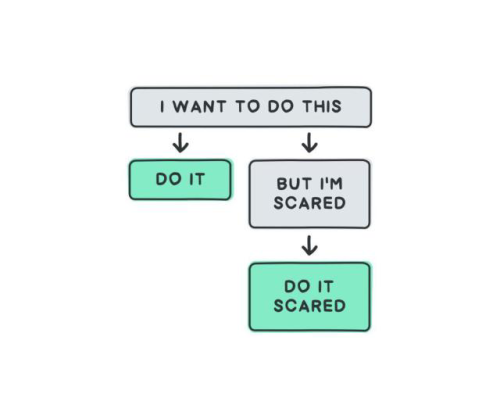





Certain words can change your brain forever and ever so you do have to be very careful about it.
